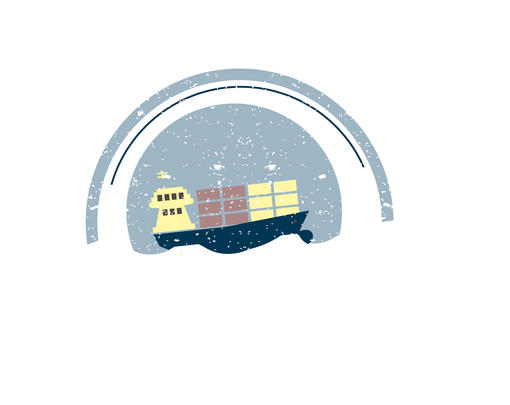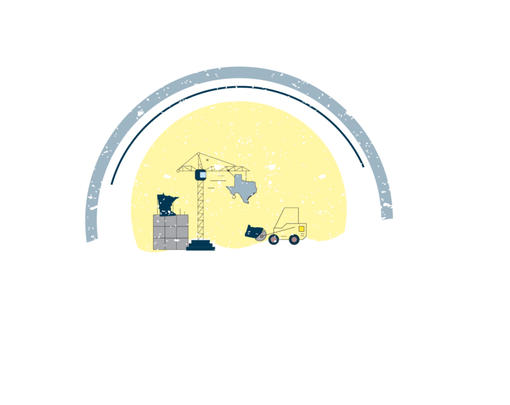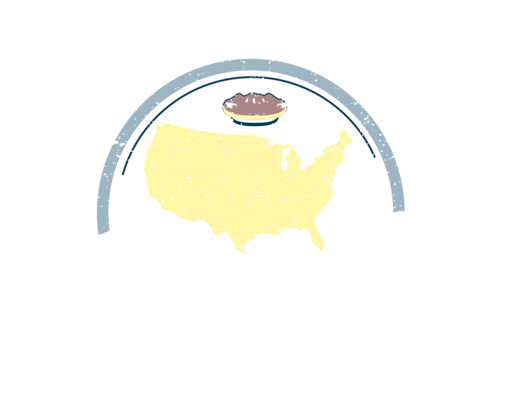Why is growth a challenging problem?
Though there is much room for debate, there is growing evidence that over the coming century we will be approaching planetary limits to traditional economic development; and this raises truly fundamental questions about how long, and how, economic systems can continue business-as-usual growth. This does not mean the economy will stop functioning in some abrupt way, nor that answers to all the questions are currently available. It means that any prudential approach must begin by confronting the increasingly likely possibility of some critical limits. The late Kenneth Boulding, put it this way, “[A]nyone who believes that exponential growth can go on forever is either a madman or an economist.” (Boulding was himself a highly regarded economist, but one who took ecological and resource concerns much more seriously than many in the profession.)1
The consumption patterns of the West are well known. In 2012, “[w]ith less than 5 percent of world population” noted the Sierra Club’s David Tilford, the United States used “one-third of the world’s paper, a quarter of the world’s oil, 23 percent of the coal, 27 percent of the aluminum, and 19 percent of the copper.”2
Yet, even poorer countries like Pakistan face future difficulties. Jorgen Randers, author of 2052: A Global Forecast for the Next Forty Years has written that ““[f]rom a resource perspective the projections for Pakistan do not look rosy…Pakistan’s demand already exceeds the country’s bio-capacity by 80%.” Randers predicts that if current trends continue “Pakistan will run out of resources well before 2052,” resulting in “a devolved, failed state, with hundreds of fiefdoms, medieval levels of child mortality, and very low literacy.”3
On a worldwide scale, a recent estimate by the Global Footprint Network is that if the 7.3 billion people in the world today were all to achieve the standard of living of those in the West in general, or of the United States in particular, it would take the ecological resources of almost 4 planets.4
A 2014 report by the World Wildlife Fund, in fact, concluded that even now “[w]e need 1.5 Earths to meet the demands we currently make on nature [as of 2014]. This means we are eating into our natural capital, making it more difficult to sustain the needs of future generations.”
Though there are numerous uncertainties, many scholars have documented the growing impact of the global economic system has made on the Earth’s basic resource system over the last few decades. Describing the unprecedented “Great Acceleration” of resource use and environmental challenge since the middle of the 20th Century, —evidenced by the exponential increase in greenhouse gasses, ocean acidification, nitrogen released in coastal zones, and tropical forest loss—Stockholm University’s Will Steffen states, “[It] is difficult to overestimate the scale and speed of change. In little over two generations – or a single lifetime – humanity (or until very recently a small fraction of it) has become a planetary-scale geological force.”5
It is also important to note a number of specific concerns. Take fresh water availability. Already more than a billion people lack access to fresh water, and more than 2.5 billion endure annual shortages.6
A 2014 United Nations study found that, “water use has been growing at more than twice the rate of population increase in the last century, and…an increasing number of regions are chronically short of water.”7 Another critical concern involves fish stocks—a major source of protein for billions of people.8
The World Wildlife Fund has found that more than half of the world’s fisheries are already “fully exploited.” The current global fishing fleet is already unsustainably large and “unless the situation improves, stocks of all species currently fished for food are predicted to collapse by 2048.”9
Growing global population (and wealth) have been steadily increasing the demand for food—even as climate change is disrupting weather patterns and creating increasingly intense competition for water and land. Global population is projected to rise from 7.3 billion to 9.7 billion by 2050 and 11.2 billion by 2100—with most of these gains in less developed nations.10
Yet yields of rice, wheat, maize, and soybeans—the world’s most crucial staples—have already been rising more slowly than demand.11
Shortages of key grains and high food prices not only produce hunger, starvation, and susceptibility to crippling diseases; they can also contribute to explosive social and political challenges. More than 60 food riots occurred in 30 different countries in 2008 alone.12
A representative statement of concern is that of Donella Meadows and her co-authors of the 2004 update of the 1972 Limits to Growth report:
Jakarta emits more air pollution than human lungs can bear. The forests in the Philippines are nearly gone. The soils of Haiti have been worn down in places to bare rock. The cod fisheries off Newfoundland have been closed. Parisians have to endure summer days of reduced speed limits to cut down pollution from their fuming cars. Several European countries saw thousands die prematurely as the summer of 2003 set new records for high temperatures. The chemical load in the Rhine was for many years so high that dredged silt from Dutch harbors now has to be treated as hazardous waste.13
A related threat is that dealing with environmental limitations is already increasing “the amount of energy and capital required to sustain the quantity and quality of material flows required by the economy.” To the degree such costs are not offset by new technological breakthroughs, the authors point out, feedback loops based on the ever greater expense of dealing with resource limits may slow (and possibly even reverse) economic growth directly.14
The argument that resource scarcity will constrain future growth is not uncontroversial. Many economists urge that technological change, the substitution of more abundant resources, and/or pricing for scarcity will greatly diminish the “drag” that exhaustible resources place on growth. So-called “intensive” or more efficient growth, it is argued, can replace “extensive” growth that merely increases the level of inputs. If so, the Earth’s carrying capacity can be increased. Put another way, some scholars concede that current economic practices are unsustainable, yet remain optimistic that future innovation will overcome current obstacles. Yale University environmental economist, William Nordhaus, for instance, has written that “I will hazard the guess that resource constraints are likely to be a small but noticeable impediment to growth over the next few decades in advanced industrial countries—although an obstacle that will continue to be surmounted by technological advance.”15
The Nobel Laureate, Robert Solow, himself a critic of some arguments concerning limits to growth, nonetheless emphasized the nature of real world rather than theoretical capacities of the economic system. “One is impressed with what a system of ideal markets, including futures markets, can accomplish in this complicated situation,” he argues, “and one can hardly miss seeing that our actual oligopolistic, politically involved, pollution-producing industry is not exactly what the textbook ordered.”16
Moreover, instead of focusing on exhaustible resources, scientific discussion has also confronted what are known as “Planetary Boundaries.” Boundaries related to climate change, biosphere integrity, biochemical flows, and others mark thresholds beyond which the Earth system would be sufficiently disrupted that it would no longer maintain its present “Holocence-like state,” that “is the only state… we know for certain can support contemporary human societies,” writes Stockholm University’s Will Steffen and his co-authors.17 The author and environmentalist Bill McKibben has helped popularize one such boundary, based on the atmospheric concentration of CO2—by noting that only around 565-1400 gigatons of carbon dioxide can be released in the future, if global average temperatures are to be kept below the widely agreed upon 2-degree Celsius threshold.18
CLIMATE CHANGE, perhaps more than any other obstacle, represents the most significant ecological limit to economic growth as currently practiced.
How Would the Pluralist Commonwealth Manage Growth?
Though all such estimates are subject to revision, prudence suggests the importance of two fundamental considerations for any serious next system design. First, the underlying mechanisms that drive ever expanding growth need to be altered; second, systemic designs that offer positive ways to encourage less resource intensive patterns are important to develop.
The Pluralist Commonwealth recognizes that the inherent drive of large for-profit capitalist firms intensifies unrestrained growth as a matter of inherent institutional and systemic logic. First, and quite simply, ever expanding growth of sales and profits is the name of the game for all major corporations operating in competitive marketplaces, and incentives for ever expanding growth exist at all levels (including the income of top managers.) Without growth, firms risk losing market share or revenue for future investments necessary to outcompete their rivals. Even more importantly, large corporations seeking investment capital must record ongoing growth and profitability or their stock will flag, they will lose investor support, and they will falter economically. (Moreover, top executives risk losing personal compensation and, if low growth persists, their jobs as well.) The drive for growth is built into capitalism. In theory, the corporate dominated system might create incentives that curb growth, but few who understand both the economics and politics of the existing system judge such policies are politically realistic. They run counter not only to the inherent dynamic and logic of the system; they run counter to the political and lobbying power of major corporations and their owners, for whom growth of profits and income are central priorities.
The institutions of the Pluralist Commonwealth are designed to undergird a new direction by virtue of their inherent structure and dynamic. For larger scale efforts, the model substitutes PUBLIC forms of enterprise (often jointly owned by workers and communities) for private corporations both because public firms are not driven inexorably to grow by stock market concerns, and because they are less driven to move from community to community, thereby destabilizing local economies in ways that undercut the development of ecologically mindful CULTURES. In addition, PLANNING freed from the political pressures of large corporations can help achieve a more balanced and coordinated economy in general, one that reduces instability and insecurity, two other foundational drivers of the fears that fuel compensating drives for excessive growth.
At the level of everyday community life, the Pluralist Commonwealth encourages the development of COOPERATIVE and other economic institutions that support a culture of community less driven by competition, status seeking, materialism, and striving for ever increasing income. Planning for full employment and job security, along with basic income guarantees–made possible politically and supported rather than opposed by local and national democratized economic institutions—also help undercut the insecurities that help drive the hunger for ever greater income.
Where can we see on the ground efforts to tackle the growth question today?
In the aftermath of the Great Recession, states across the country demonstrated one potential means of operating in a lower growth environment: work-sharing. Work-sharing programs allow firms to avoid layoffs by reducing employee hours, while providing employees with pro-rated unemployment insurance to partially make up lost wages. For example, instead of firing one out of five employees a firm could cut everyone’s hours by 20 percent, while everyone’s pay may only decrease by 10 percent through insurance. State work-sharing programs increased by almost 40 percent during the crisis—with 28 states participating as of 2014—and have been credited with saving more than 500,000 jobs from 2008 to 2013.19 While no silver bullet, work-sharing establishes a powerful precedent. Economic difficulties (or, more positively, the benefits from productivity gains) can be shared in a more equitable fashion. Indeed, taking future productivity gains as leisure instead of consumption through a shortened workweek would be one way to reduce society’s ecological footprint.
See also:
CLIMATE CHANGE, COOPERATIVE, CULTURE, PLANNING, PUBLIC
Further reading
Bill McKibben, “Global Warming’s Terrifying New Math,” Rolling Stone, July 19, 2012.
Christian Parenti, “’The Limits to Growth’: A Book That Launched a Movement,” The Nation, December 5, 2012.
Donella Meadows, Jorgen Randers, and Dennis Meadows, The Limits to Growth: The 30-Year Update (White River Junction, Vermont: Chelsea Green Publishing Company, 2004).
Herman Daly, Beyond Growth: The Economics of Sustainable Development (Boston: Beacon Press, 1996).
Michelle Chen, “Work-sharing: A Socialist Alternative to Layoffs?” The Nation, October 20, 2014.
Will Steffen, et al. “Planetary boundaries: Guiding human development on a changing planet,” Science 347, 6223 (2015) doi: 10.1126/science.1259855.
- 1Kenneth Boulding quoted in John Dryzek, Rational Ecology (Oxford, UK: Basil Blackwell, 1987), 73.
- 2David Tilford quoted in Roddy Scheer and Doug Moss, “Use It and Lose It: The Outsize Effect of U.S. Consumption on the Environment,” Scientific American, September 14, 2012, accessed November 3, 2016.
- 3Jorgen Randers, 2052: A Global Forecast for the Next Forty Years (White River Junction, VT: Chelsea Green, 2012), 145.
- 4WWF, Living Planet Report 2015: Species and Spaces, People and Places (Gland, Switzerland: WWF, 2014), accessed November 3, 2016.
- 5Will Steffen “The Trajectory of the Anthropocene: The Great Acceleration” The Anthropological Review 2 (2015).
- 6 “Water Scarcity: Overview,” World Wildlife Fund, accessed November 3, 2016.
- 7“Water Scarcity,” United Nations Department of Economic and Social Affairs, November 24, 2014, accessed November 3, 2016, http://www.un.org/waterforlifedecade/scarcity.shtml.
- 8Kjellrun Hiis Hauge, et al., Fisheries Depletion and Collapse (Geneva, Switzerland: International Risk Governance Council, 2009), accessed November 3, 2016.
- 9 “Unsustainable Fishing,” World Wildlife Fund, accessed November 3, 2016.
- 10“2015 Revision of World Population Prospects,” United Nations Department of Economic and Social Affairs, accessed November 3, 2016.
- 11Deepak K. Ray, et al., “Yield Trends are Insufficient to Double Global Crop Production by 2050,” PLoS One 8(2013), accessed August 29, 2016, doi: 10.1371/journal.pone.0066428.
- 12Marco Lagi, et al., The Food Crises and Political Instability in North Africa and the Middle East (Cambridge, MA: New England Complex Systems Institute, September 28, 2011), accessed November 3, 2016.
- 13Donella Meadows, et al., Limits to Growth: The 30-Year Update (White River Junction, VT: Chelsea Green, 2004), 123.
- 14Donella Meadows, et al., Limits to Growth: The 30-Year Update (White River Junction, VT: Chelsea Green, 2004), 51.
- 15William Nordhaus, “Lethal Model 2: The Limits to Growth Revisited,” Brookings Papers on Economic Activity, 2 (1992): 39.
- 16Robert Solow, “The Economics of Resources of the Resources of Economics,” The American Economic Review, Vol. 64, No. 2, (May, 1974), pp. 1-14.
- 17Will Steffen et al., “Planetary Boundaries: Guiding Human Development on a Changing Planet” Science 347 (2015): 1.
- 18Bill McKibben, “Global Warming’s Terrifying New Math” Rolling Stone, July 19, 2012, accessed November 3, 2016, hfttp://www.rollingstone.com/politics/news/global-warmings-terrifying-new-math-20120719.
- 19George Wentworth, Claire McKenna, Lynn Minick, Lessons Learned: Maximizing the Potential of Work-Sharing in the United States, (New York: NY: National Employee Law Project, October 2014), accessed August 23, 2016.





























